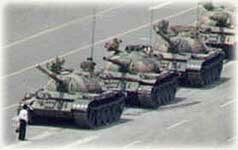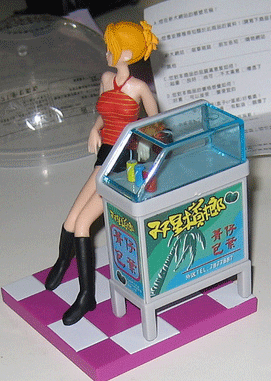AsiaPundit is pleased to announce the commencement of the new round of Asia Blog Awards. The awards are based on the Japanese financial year, which ends on March 31, and nominations are now open for the April 1-June 30 period, full-year awards are to be based on the quarterly contests.
Details are below, nominations for the below categories can be made on the individual pages linked below until the end of June 16 (Samoan time).
Awards are at present limited to English-language or dual-language sites.
Region/Country Specific Blogs:
- Best China Blog
- Best Hong Kong Blog
- Best India Blog
- Best Indonesia Blog
- Best Japan Blog
- Best Korea Blog
- Best Malaysia Blog
- Best Mekong Blog (Vietnam, Cambodia, Laos, Myanmar/Burma)
- Best Mongolian or ‘Stan’ Blog (Mongolia, Uzbekistan, Turkmenistan,Tajikistan, Kyrgyzstan, Kazakhstan, Afghanistan)
- Best Philippine Blog
- Best Singapore Blog
- Best South Asia Blog (Bangladesh, Nepal, Pakistan, Sri Lanka, Tibet)
- Best Taiwan Blog
- Best Thai Blog
- Best of the Rest (Bhutan, Timor Leste, Brunei etc…)
Non-region specific awards:
- Best Activist Blog
- Best BGLT Blog
- Best Bridge Blog
- Best Business/Economics Blog
- Best Design
- Best Diarist
- Best Essayist
- Best Food Blog
- Best Group Blog
- Best Humor Blog
- Best Original Reporting
- Best Photo Blog
- Best Podcast
- Best Satirist
- Best Sex Blog
- Best Travel Blog
- Best Video Blog
Podcasts, photo and video blogs must be based on original content — which means a site such as Danwei.tv is acceptable but TV in Japan is not (although it is an excellent site).
Some categories may be deleted or combined if they lack a full slate nominations - and some may be added should it be warranted.
Winners will be judged in equal parts on: (a) votes, (b) technorati ranking and (c) judges’ selection.
While judges will naturally have biases, they will hopefully offset imbalances in other areas (such as inevitable cheating in the voting and inflationary blogroll alliances in the Technorati ranks).
The names or sites of the judges will be public.
Judges will be ineligible for nomination. As the awards largely intend on providing exposure to lesser-known sites of merit, we are hopeful that authors of ‘A-list’ sites that tend to dominate such contests will disqualify themselves by being judges.
The contest has been endorsed by previous ABA host Simon who is also serving as a judge (thereby disqualifying Simon World).
Traffic — the most telling and accurate measure of a site’s populatity — may be a consideration in future awards. However, at present, there is no clear or universal way to accurately measure and contrast traffic (sites such as Sitemeter, Statcounter offer results that cannot be compared, while services such as Alexa.com do not work for sites that are not hosted on independent domains).
This is all imperfect and will be tweaked in future events (with transparency, of course).
Most importantly, this is intended to be fun.
Technorati Tags: asia, asia blog awards, east asia, northeast asia, puppy, southeast asia
 The “Unknown Rebel” who famously stood up to a column of tanks during the pro-democracy demonstrations in Tiananmen Square in 1989 is rumored to be living in Taiwan where he reportedly settled in 1993.The “tank man” Wang Weilin has been an adviser on ceramic artifacts and antiques to Taiwan’s National Palace Museum, the Epoch Times quoted a Hong Kong-based professor who spoke on condition of anonymity as saying.
The “Unknown Rebel” who famously stood up to a column of tanks during the pro-democracy demonstrations in Tiananmen Square in 1989 is rumored to be living in Taiwan where he reportedly settled in 1993.The “tank man” Wang Weilin has been an adviser on ceramic artifacts and antiques to Taiwan’s National Palace Museum, the Epoch Times quoted a Hong Kong-based professor who spoke on condition of anonymity as saying.


 I hadn’t seen Massage Boy in years, maybe six or seven, certainly five at least, and when thoughts of him and his disfigured yet cherubic smile did come to mind, I’d usually turn my eyes down to the sidewalk and with a small shrug of guilt - for neglecting a friend, or something like that - and imagine he was in an HIV/AIDS hospice somewhere, or dead. I mean, what other fate are you supposed to imagine for a guy who solicits sex with international hotel guests for money? Especially once he’d stopped hanging out in nightclubs.
I hadn’t seen Massage Boy in years, maybe six or seven, certainly five at least, and when thoughts of him and his disfigured yet cherubic smile did come to mind, I’d usually turn my eyes down to the sidewalk and with a small shrug of guilt - for neglecting a friend, or something like that - and imagine he was in an HIV/AIDS hospice somewhere, or dead. I mean, what other fate are you supposed to imagine for a guy who solicits sex with international hotel guests for money? Especially once he’d stopped hanging out in nightclubs. The Patriot-like missiles were recently tested in north-west China with successful results, knocking down a reconaissance plane and a missile.
The Patriot-like missiles were recently tested in north-west China with successful results, knocking down a reconaissance plane and a missile. 


 Zoos in the United States have told China they cannot afford to keep paying $1 million (£580,000) each year for the loan of Giant Pandas. […] Washington National Zoo spokesman John Gibbons told the BBC: "There is a possibility that there may be a day when there may not be Giant Pandas at the zoo.
Zoos in the United States have told China they cannot afford to keep paying $1 million (£580,000) each year for the loan of Giant Pandas. […] Washington National Zoo spokesman John Gibbons told the BBC: "There is a possibility that there may be a day when there may not be Giant Pandas at the zoo. Reports that the KMT walks lockstep with the mainland (China) in their anti-Japan campaign do not reflect my real feelings. I even love sashimi!” On the 10th Ma Ying Jiu (mayor of Taipei), chairman of the KMT[Chinese Nationalist Party], Taiwan’s largest opposition party, assembled Japanese reporters resident in Taipei and issued a denial of the viewpoint that he was himself a believer in anti-Japan ideology.
Reports that the KMT walks lockstep with the mainland (China) in their anti-Japan campaign do not reflect my real feelings. I even love sashimi!” On the 10th Ma Ying Jiu (mayor of Taipei), chairman of the KMT[Chinese Nationalist Party], Taiwan’s largest opposition party, assembled Japanese reporters resident in Taipei and issued a denial of the viewpoint that he was himself a believer in anti-Japan ideology. In the 1980s, my cousin did business in Taiwan. Being a profligate entertainer of major customers, he once decided to impress by holding an emperor’s banquet (金玉滿堂) at the Hilton in Hsi Men Ting (西門町), the older downtown section of Taipei (台北). The centerpiece of the table was
In the 1980s, my cousin did business in Taiwan. Being a profligate entertainer of major customers, he once decided to impress by holding an emperor’s banquet (金玉滿堂) at the Hilton in Hsi Men Ting (西門町), the older downtown section of Taipei (台北). The centerpiece of the table was 
 The so-called betel-nut beauties, who are unique to Taiwan, peddle the island’s second-largest crop to 17.5 percent of the adult male population, according to government estimates.
The so-called betel-nut beauties, who are unique to Taiwan, peddle the island’s second-largest crop to 17.5 percent of the adult male population, according to government estimates.
 I love cradling the squat brown bottle in my hand, seeing the beads of condensation gathered around the engraved logo, feeling the first slug hit the back of my throat … most of all, I love San Miguel Pale Pilsen for the very reason that Filipinos are deserting it in droves, because it is quintessentially and timelessly Filipino.
I love cradling the squat brown bottle in my hand, seeing the beads of condensation gathered around the engraved logo, feeling the first slug hit the back of my throat … most of all, I love San Miguel Pale Pilsen for the very reason that Filipinos are deserting it in droves, because it is quintessentially and timelessly Filipino.





 In Singapore, it is the government itself that stands in the way of the unfettered private enterprise that the Heritage Foundation’s criteria are supposed to favor. The major real estate, banking, transport, manufacturing and utility companies listed on the stock market are all government-controlled entities. They may be efficient, but is this an economy free of government intervention? The index also claims that "the market sets almost all wages." But actually "wages are based on annual recommendations made by the tripartite National Wages Council."
In Singapore, it is the government itself that stands in the way of the unfettered private enterprise that the Heritage Foundation’s criteria are supposed to favor. The major real estate, banking, transport, manufacturing and utility companies listed on the stock market are all government-controlled entities. They may be efficient, but is this an economy free of government intervention? The index also claims that "the market sets almost all wages." But actually "wages are based on annual recommendations made by the tripartite National Wages Council."

































